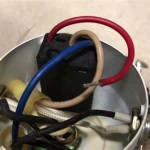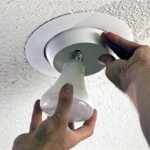Essential Aspects of Ceiling Fan Light Bulbs Replacement
Ceiling fans are not only essential for cooling rooms, but they also add a stylish touch to any space. Replacing the light bulbs in a ceiling fan is a simple task that can be completed in a few minutes. However, there are a few things to keep in mind when replacing ceiling fan light bulbs to ensure safety and proper functioning.
Safety First
Before starting any electrical work, it is important to turn off the power to the ceiling fan at the circuit breaker or fuse box. This will prevent the risk of electrical shock. Also, allow the light bulbs to cool down completely before handling them, as they can get very hot when in use.
Choose the Right Bulbs
Ceiling fan light bulbs come in a variety of sizes, shapes, and wattages. It is important to select the correct type of bulb for your ceiling fan. The bulb's size should match the socket in the fan, and the wattage should not exceed the maximum wattage specified by the fan manufacturer. Using bulbs with higher wattage than recommended can overheat the fan and create a fire hazard.
Types of Ceiling Fan Light Bulbs
There are several types of light bulbs available for ceiling fans, including incandescent, fluorescent, LED, and halogen bulbs. Incandescent bulbs are the most common type, but they are not as energy-efficient as other types of bulbs. Fluorescent bulbs are more energy-efficient than incandescent bulbs, but they can take longer to turn on and may not be suitable for all ceiling fans. LED bulbs are the most energy-efficient option and have a long lifespan. Halogen bulbs are brighter than incandescent bulbs and have a whiter light, but they also use more energy.
Step-by-Step Guide to Replacing Ceiling Fan Light Bulbs
Once you have selected the correct light bulbs, follow these steps to replace the light bulbs in your ceiling fan:
- Remove the old bulbs: Gently grasp the old bulb and pull it straight down to remove it from the socket. Do not twist or turn the bulb.
- Clean the bulb socket: Use a clean cloth to wipe away any dust or debris from the bulb socket.
- Insert the new bulbs: Align the new bulb with the socket and push it straight up into place. Do not twist or turn the bulb.
- Tighten the bulbs: Once the new bulb is in place, tighten it by turning it slightly clockwise. Do not overtighten the bulb.
- Turn on the power: Return to the circuit breaker or fuse box and turn on the power to the ceiling fan. Test the new bulbs to make sure they are working properly.
Additional Tips
Here are a few additional tips for replacing ceiling fan light bulbs:
- If you have a high ceiling, use a stepladder or a chair to reach the light bulbs.
- If you are replacing multiple bulbs, replace them one at a time to avoid overloading the circuit.
- Dispose of old light bulbs according to local regulations.
Replacing ceiling fan light bulbs is a simple task that can be completed in a few minutes. By following these tips, you can ensure that your ceiling fan is operating safely and efficiently.

4 Ways To Replace A Light Bulb In Ceiling Fan Wikihow

4 Ways To Replace A Light Bulb In Ceiling Fan Wikihow

4 Ways To Replace A Light Bulb In Ceiling Fan Wikihow

4 Ways To Replace A Light Bulb In Ceiling Fan Wikihow

4 Ways To Replace A Light Bulb In Ceiling Fan Wikihow

4 Ways To Replace A Light Bulb In Ceiling Fan Wikihow

Ceiling Fan Light Bulbs Led Lights

Ceiling Fan Light Bulbs Led Lights

Led Ceiling Fan Light Bulbs 40w Equivalent E12 Bulb 5w 120v Daylight Whi

Ceiling Fan Light Bulbs Led Lights
Related Posts








